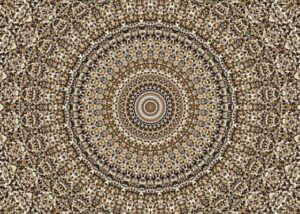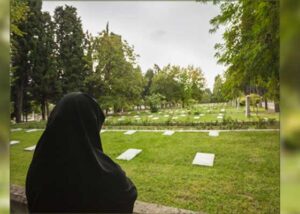Quran
Hadith
Islamic Text
Yes, women do have to wear Hijab in front of young boys if they are Mumayiz. Meaning they can differentiate between that which is Owrah and that which is not.
يَاأَيُّهَا الَّذِينَ آمَنُوا لِيَسْتَأْذِنْكُمُ الَّذِينَ مَلَكَتْ أَيْمَانُكُمْ وَالَّذِينَ لَمْ يَبْلُغُوا الْحُلُمَ مِنْكُمْ ثَلَاثَ مَرَّاتٍ
O You who believe, those that your right hands possess and those that have not reached maturity must seek permission, three times (prior to entering upon you). (Surah al-Nur, 58).
The verse above obliges children who are not Baligh (legally adult) to seek permission before entering a room in which is a non-Mahram female. Therefore, it is required for women to cover themselves in the presence of such children. However, if they are very young then it is not required.
أَوِ الطِّفْلِ الَّذِينَ لَمْ يَظْهَرُوا عَلَى عَوْرَاتِ النِّسَاءِ
Or children that do not comprehend the Owrah of women. (Surah al-Nur, 31).
The context of the verse above is that women are not required to cover themselves in the presence of children that do not comprehend the Owrah of women. Owrah refers to the parts of the body that need to be covered.
Therefore, the presence of children who have no understanding of this (Tamyeez), does not necessitate the women to wear Hijab. The Hanafi scholars have provided he following guidance when implementing these rules.
{أَوِ الطِّفْلِ الَّذِينَ لَمْ يَظْهَرُوا عَلَى عَوْرَاتِ النِّسَاءِ} [النور: 31]
مُسْتَثْنَى مِنْ قَوْلِهِ عَزَّ شَأْنُهُ {وَلا يُبْدِينَ زِينَتَهُنَّ} [النور: 31] إلَّا لِمَنْ ذُكِرَ وَالطِّفْلُ فِي اللُّغَةِ الصَّبِيُّ مَا بَيْنَ أَنْ يُولَدَ إلَى أَنْ يَحْتَلِمَ وَأَمَّا الَّذِي يَعْرِفُ التَّمْيِيزَ بَيْنَ الْعَوْرَةِ وَغَيْرِهَا وَقَرُبَ مِنْ الْحُلُمِ فَلَا يَنْبَغِي لَهَا أَنْ تُبْدِي زِينَتَهَا لَهُ أَلَا تَرَى أَنَّ مِثْلَ هَذَا الصَّبِيِّ أُمِرَ بِالِاسْتِئْذَانِ فِي بَعْضِ الْأَوْقَاتِ بِقَوْلِهِ تَبَارَكَ وَتَعَالَى {وَالَّذِينَ لَمْ يَبْلُغُوا الْحُلُمَ مِنْكُمْ ثَلاثَ مَرَّاتٍ} [النور: 58]. (بدائع الصنائع في ترتيب الشرائع)
Or children that do not comprehend the Owrah of women. (Surah al-Nur, 31). This is an exception from His (Mighty and Majestic) saying, They must not display their beauty. (Surah al-Nur, 31). Except in the presence of those mentioned. A child, linguistically, is a boy. From birth until maturity. As for the one who differentiates (Tamyeez) between that which is Owrah and that which is not, and is close to maturity, it is not correct for her to display her beauty in his presence. Do you not see that the like of this boy is commanded to seek permission at certain times? This due to His (Majestic and Exalted) saying, And those that have not reached maturity must seek permission, three times (prior to entering upon you). (Surah al-Nur, 58). (Imam Abu Bakr al-Kaasaani, Badai al-Sanai).
{أَوِ الطِّفْلِ الَّذِينَ لَمْ يَظْهَرُوا عَلَى عَوْرَاتِ النِّسَاءِ} [النور: 31]
أَيْ لَمْ يَطَّلِعُوا: أَيْ لَا يَعْرِفُونَ الْعَوْرَةَ وَلَا يُمَيِّزُونَ بَيْنَهَا وَبَيْنَ غَيْرِهَا. (العناية شرح الهداية)
Or children that do not comprehend the Owrah of women. (Surah al-Nur, 31). Meaning, they do not perceive. Meaning, they do not recognise Owrah. They cannot differentiate between it and that which is not it. (Imam al-Babarti, al-Inayah Sharh al-Hidaayah).
إِمَّا من ظهر على الشَّيْء إِذا اطلع عَلَيْهِ، أَي: لَا يعْرفُونَ مَا الْعَوْرَة وَلَا يميزون بَينهَا وَبَين غَيرهَا، وَإِمَّا من ظهر على فلَان إِذا قوي عَلَيْهِ أَي: لم يبلغُوا أَوَان الْقُدْرَة على الْوَطْء. (عمدة القاري شرح صحيح البخاري)
It is either from, Dhahara upon something, when he perceives it. Meaning, they do not recognise what Owrah is. Thus, they cannot differentiate between it and that which is not it. Or it is from Dhahara upon someone, meaning he has an ability over the person. Meaning they are not able to engage in relations. (Imam Badr al-Deen al-Ayni, Umdatu al-Qari).
The Hanafi Madhab generally considered Tamyeez (discernment) to take place at age seven. Although this can differ from person to person and from culture to culture. Therefore, exercising caution is good practice. So women must cover themselves in the presence of children aged seven (lunar years), but to start sooner is good practice.
الْمُرَادُ بِالْعَاقِلِ الْمُمَيِّزُ، وَهُوَ مَنْ بَلَغَ سَبْعَ سِنِينَ فَمَا فَوْقَهَا. (منحة الخالق)
The meaning of comprehending is Mumayiz (discerning). It refers to someone who has reached the age of seven or older. (Imam Ibn Abideen, Minhatu al-Khaliq).
وأقل سن يعتبر فيه التمييز سبع سنين. (حاشية الطحطاوي على مراقي الفلاح)
The earliest age that one is considered to be Mumayiz (discerning) is seven years. (Imam Ahmad bin Muhammad al-Tahtawi, Hashiyatu al-Tahtawi).
فَقَدَّرْنَا مُدَّةَ الْقُرْبِ مِنْهُ بِسَبْعِ سِنِينَ اعْتِبَارًا بِمُدَّةِ التَّمْيِيزِ. (المبسوط)
We consider the age of being close to it (Buloogh) as seven years. Based upon the age of Tamyeez (discernment). (Imam Muhammad bin Ahmad al-Sarakhsi, al-Mabsoot).
Due to the fact that a young boy is not considered to be comprehending of matters pertaining to Owrah, there are situations in which he may be required to carry out the Ghusl of a deceased woman. The Hanafi scholars mentioned that if a woman dies and there is no female present to wash her body, not even a Kafir woman, then a young boy is to do it.
And Allah Most High Knows Best.
-Answered by Shaykh Noorud-deen Rashid (21.03.2023)
See also:
Can you look at hair of a woman you’re considering for marriage?
See also video:






